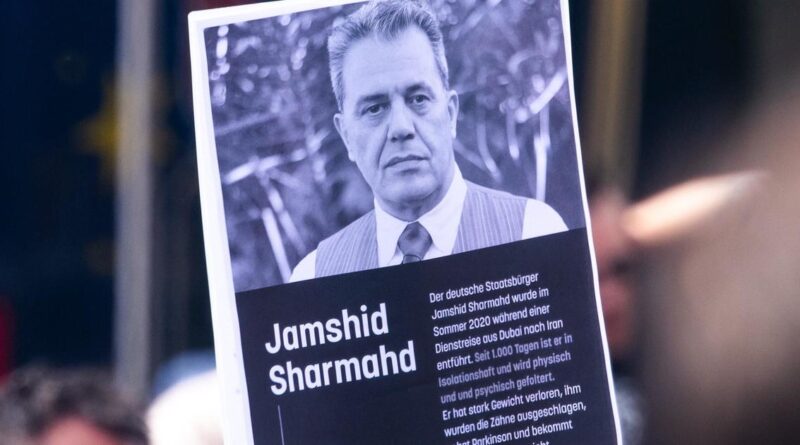Jamshid Sharmahd, Iranian-German prisoner who lived in California, executed in Iran over disputed terror charges
Iranian-German prisoner Jamshid Sharmahd, who was kidnapped in Dubai in 2020 by Iranian security forces, has been executed in Iran after being convicted on terror charges disputed by his family, the country’s judiciary reported Monday.
Sharmahd, 69, was one of several Iranian dissidents abroad in recent years either tricked or kidnapped back to Iran as Tehran began lashing out after the collapse of its 2015 nuclear deal with world powers.
Sharmahd’s execution comes just two days after Israel launched a retaliatory strike against Iran amid the ongoing Mideast wars. While not directly linking his execution to the attack, the judiciary accused him of being “under orders from masters in Western intelligence agencies, the United States and the child-killing Zionist regime” when allegedly carrying out attacks in Iran.
The judiciary’s Mizan news agency reported his execution took place Monday morning, without offering details. Iran, one of the world’s top executioners, typically hangs condemned prisoners at sunrise.
Iran accused Sharmahd, who lived in Glendora, California, for two decades, of planning a 2008 attack on a mosque that killed 14 people and wounded over 200 others, as well as plotting other assaults through the Kingdom Assembly of Iran opposition group and its Tondar militant wing.
Photo by Ying Tang/NurPhoto via Getty Images
Iran also accused Sharmahd of “disclosing classified information” on missile sites of Iran’s paramilitary Revolutionary Guard during a television program in 2017.
“Without a doubt, the divine promise regarding the supporters of terrorism will be fulfilled, and this is a definite promise,” the judiciary said in announcing his execution.
Sharmahd’s family disputed the allegations and had worked for years to see him freed. They could not be immediately reached for comment.
Germany expelled two Iranian diplomats in 2023 over Sharmahd’s death sentence. The U.S. State Department has referred to Iran’s treatment of Sharmahd as “reprehensible” and described him facing a “sham trial.”
The German government and the U.S. State Department did not immediately respond to a request for comment Monday.
Amnesty International said the proceedings against Sharmahd had been a “grossly unfair trial” because he had been denied access to an independent lawyer and “the right to defend himself.”
“The government-appointed lawyer said that without payment of $250,000 from the family, he would not defend Jamshid Sharmahd in court and would only ‘sit there,'” Amnesty said in one report on his case.
However, Amnesty noted that Sharmahd ran a website for the Kingdom Assembly of Iran and its Tondar militant wing that included claims of “responsibility for explosions inside Iran,” though he repeatedly denied being involved in the attacks.
Sharmahd had been in Dubai in 2020 while on his way to India for a business deal involving his software company. He was hoping to get a connecting flight despite the ongoing coronavirus pandemic disrupting global travel at the time.
Sharmahd’s family received the last message from him on July 28, 2020. It’s unclear how the abduction happened. But tracking data showed Sharmahd’s mobile phone traveled south from Dubai to the city of Al Ain on July 29, crossing the border into Oman. On July 30, tracking data showed the mobile phone traveled to the Omani port city of Sohar, where the signal stopped.
Two days later, Iran announced it had captured Sharmahd in a “complex operation.” The Intelligence Ministry published a photograph of him blindfolded.
His daughter, Gazelle Sharmahd, saw her father appear on Iranian TV in a courtroom, looking petrified.
“He’s forced to confessions about crimes he did not commit,” Gazelle Sharmahd told “60 Minutes” recently. “The charge that they gave him is corruption on Earth. That’s why he got the death sentence.”
Koosha Mahshid Falahi / AP
Iran carries out the highest number of executions annually after China, according to rights groups, including Amnesty International. The number of executions in 2023 was the highest recorded since 2015 and marked a 48% increase from 2022, and a 172% increase from 2021, Amnesty said.
According to Human Rights Watch, Iran executed at least 87 people in August, including 29 in one day.






